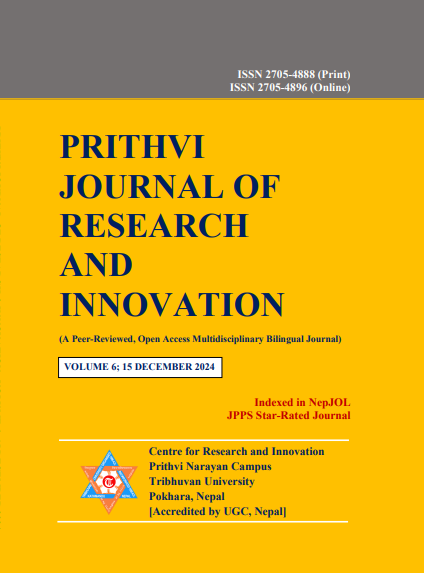Teachings of Shrimad Bhagavad Gita to Modern Education: Exploring Life Lessons
DOI:
https://doi.org/10.3126/pjri.v6i1.72859Keywords:
Modern education, teaching method, Shrimad Bhagavad Gita, YogaAbstract
The main purpose of this paper is to explore life lessons through the teachings of Shrimad Bhagavad Gita, which can be helpful for modern education. The Shrimad Bhagavad Gita is knowledge in the form of a song sung from the battleground in the twenty-fifth to forty-second chapters of the Bhishma Parva of the Mahabharata. It has been sung in seven hundred verses as God-given knowledge. The Shrimad Bhagavad Gita has 645 Anushtup and 55 Tristup verses and 23066 letters. All of them are divided into the eighteen chapters. All the verses are educational for life and the world. To explore life lessons through the teachings of Shrimad Bhagavad Gita, four teachers, two former teachers, one current teacher, one retired teacher and the principals of Kedareshwor and Bindabasini temple with each one student have been interviewed. A total of eight people filled the questionnaire. Thus, data were collected by interviewing five members of the Shrimad Bhagavad Gita study group and one former Sanskrit teacher. Analyzing the obtained data, everyone was of the opinion that the knowledge of Shrimad Bhagavad Gita is an indispensable tool for today's newly literate people. Everyone is of the same opinion that there is a suitable and effective teaching method given by Shri Krishna to Arjuna and if it is used in the classroom, it can make the classroom more productive and change the behavior of students. The study concludes that if today's teachers also identify this method and use it in the classroom, education and classroom teaching in schools will be effective and the relationship between Shrimad Bhagavad Gita and modern education can be established.
Downloads
Downloads
Published
How to Cite
Issue
Section
License

This work is licensed under a Creative Commons Attribution-NonCommercial 4.0 International License.
© Centre for Research and Innovation (CRI), Prithvi Narayan Campus (TU)

